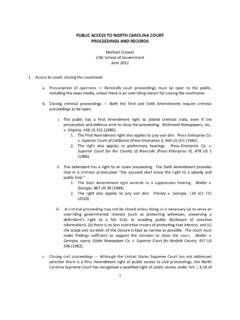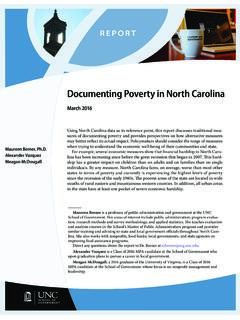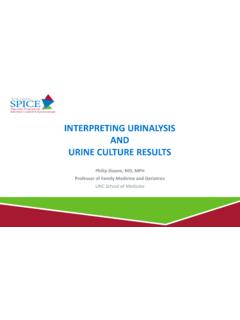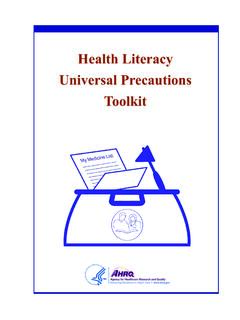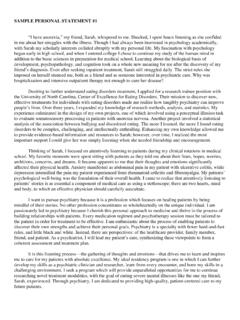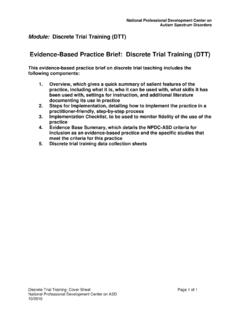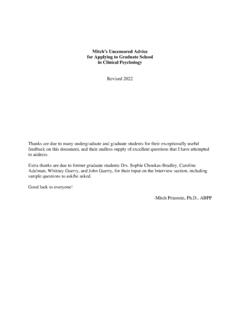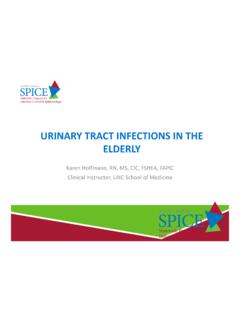Transcription of THE FAIR LABOR STANDARDS ACT (FLSA) - UNC School of …
1 Diane M. Juffras School of Government (919) 843-4926 THE FAIR LABOR STANDARDS ACT (FLSA) 29 201-219 OVERVIEW The Fair LABOR STANDARDS Act (FLSA) is a federal law that sets minimum wage, overtime pay, equal pay, record keeping, and child LABOR STANDARDS for employers. It is administered by the Wage and Hour Division of the Department of LABOR ( ). The FLSA s minimum wage and overtime requirements apply to all non-exempt state and local government employees. DETERMINING WHETHER A POSITION IS EXEMPT OR NON-EXEMPT A. Everyone is non-exempt unless they can be shown to satisfy all three of the following: They are salaried, which means that they receive the same wages from pay period to pay period and that there are no changes to that amount based on variations in quality or quantity of work (the salary basis test ); and They earn at least $455 per week, and They are executive, administrative or professional employees within the meaning of those terms as set forth in United States Department of LABOR regulations (the duties tests ).
2 B. The Executive Duties Test: 1. Regularly direct the work of at least two employees, and 2. Have a primary duty of management, and 3. Have hiring, firing or promotion authority, or recommendations about hiring, firing and promotions are given particular weight. C. The Administrative Duties Test: 1. Have a primary duty of office or nonmanual work directly related to management or general business operations of the employer, and 2. Perform work requiring the exercise of discretion and independent judgment on matters of significance to the employer. 2 Academic Administrative Duties Test: a. Have a primary duty of performing administrative functions directly related to academic instruction -- the administrative work must be more than just office or non-manual work.
3 B. No discretion and independent judgment requirement. D. The Learned Professional Duties Test: 1. Must perform work requiring advanced knowledge a. Intellectual in character b. Requires consistent exercise of discretion and independent judgment 2. Advanced knowledge must be in a field of science or learning a. For example, law, medicine, teaching, accounting, actuarial science, engineering, architecture, pharmacy and physical, chemical and biological sciences. b. The advanced knowledge must be customarily acquired by a prolonged course of specialized intellectual instruction. Professional Exemption for Teachers a.
4 Primary duty of teaching, tutoring, instructing or lecturing in the activity of imparting knowledge. b. Employed in public School , community college, four -year college or university. c. Salary basis and salary threshold tests do not apply. d. Discretion and judgment requirement does not apply. Professional Exemption for Computer Employees. Work must focus on: a. the application of systems analysis, techniques and procedures to determine hardware, software or system functional specifications (this may include consulting with users); b. the design, development, documentation, analysis, creation, testing or modification of computer systems or programs, either based on and related to user or system design specifications, or related to machine operating systems; or c.
5 A combination of the two. 3 D. The FLSA does not cover the following persons who may perform work for a state or local government: 1. elected officials and their personal staff 2. policymaking appointees 3. volunteers 4. independent contractors 5. certain trainees HOURS WORKED 29 203(g); 29 CFR , For FLSA purposes, hours worked are: All time during which an employee is required to be on the employer s premises or at some other assigned workplace; and All time during which the employee is suffered or permitted to work. A. Bona Fide Meal Periods 29 CFR 1. Must be at least thirty minutes in length 2.
6 Employee must be completely relieved of duties 3. Employee does not have to be allowed to leave the premises. Bona Fide Meal Periods for 207(k) Personnel 29 CFR a. Law Enforcement Tour of 24 hrs or less: Meal periods of 30 min. may be excluded unless officers are on-call during that time. b. Firefighter Shift of 24 hrs or less: Meal periods may NOT be excluded. c. Law Enforcement & Firefighters on Duty More than 24 hrs: Meal periods may be excluded if they are 30 min. and employee is relieved of duties (that is, the employee is not on-call). B. Sleep Time 29 CFR See 29 CFR for 207(k) personnel 1.
7 Shift must be minimum of 24 hours ( ) before sleep time can be excluded. 2. No more than 8 hours can be excluded. 3. Express or implied agreement required. 4. Employer must provide adequate sleeping facilities. 5. Employee must be able to get at least 5 hours of uninterrupted sleep. 4 C. Travel Time 1. From home to work a. Normal travel from home to work is not compensable time. See 29 CFR b. Travel from home after the end of the work day to respond to an off-the-worksite emergency would be compensable time. See 29 CFR c. If an employee is on-call and is called back to work, the time spent traveling to and from work is compensable.
8 2. Away from Home Community a. Travel away from home is compensable when it occurs during the employee's workday. The employee is simply substituting travel for other duties. b. Travel away from home is compensable when it occurs during what would be working hours, but on nonworking days. iii. If an employee regularly works from 9 to 5 from Monday through Friday, travel time on from 9 to 5 on Saturday and Sunday is also compensable time. c. Time traveling away from home outside of regular working hours as a passenger on an airplane, train, boat, bus, or automobile is not compensable. See 29 CFR ; see also OVERTIME A.
9 Employers must pay overtime or one-and-one-half the employee s regular rate of pay for each hour worked over forty (40) in any given workweek by a nonexempt employee. B. Comp time Local governments may give their employees compensatory time-off at the rate of one-and-one-half hours for every hour worked over 40 in lieu of cash overtime up to a total of 240 hours. 1. Public safety may receive comp time up to a total of four-hundred eighty (480) hours. C. Exceptions: 1. The Fewer than Five Rule Governments with fewer than five (5) law enforcement officers or fewer than five firefighters in any given week are exempt from paying overtime to law enforcement officers or firefighter, as the case may be.
10 2. The 207(k) Exemption for Law Enforcement and Firefighters 5 a. The 207(k) exemption allows work periods between 7 and 28 days. Under the 207(k) exemption, overtime is owed to nonexempt law enforcement officers only for hours over 171 in a 28-day cycle or in proportion to 171 for work periods of fewer than 28 days. Overtime is owed to nonexempt firefighters only for hours over 212 in a 28-day cycle. Law Enforcement Fire Protection 28 days 171 hrs. 212 hrs. 14 days 86 hrs. 106 hrs. 7 days 43 hrs. 53 hrs. b. Establishing the 207(k) Exemption: i. Requires notation in payroll records showing length of period and starting date / time.






